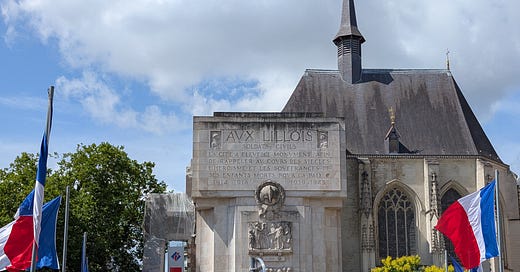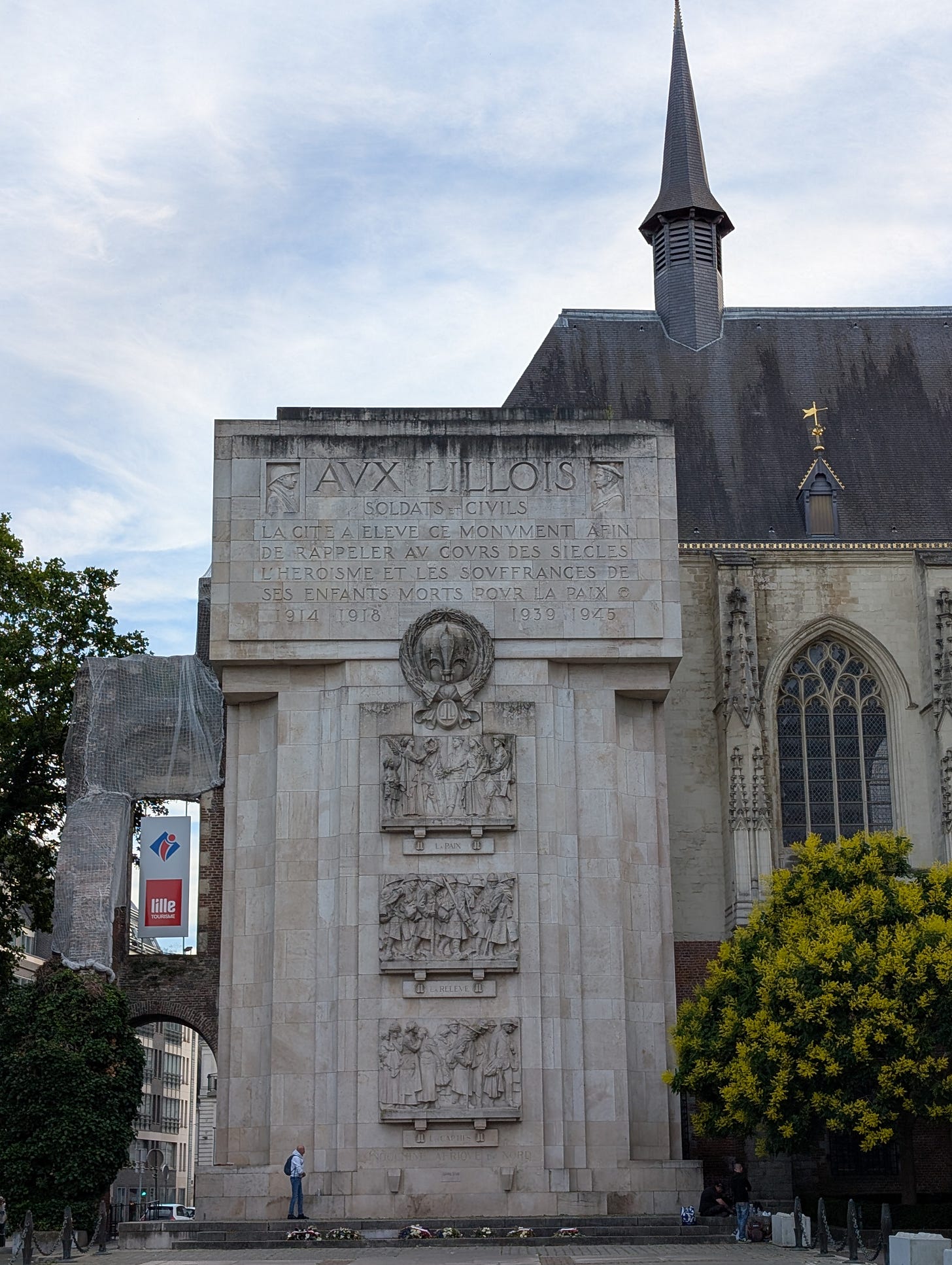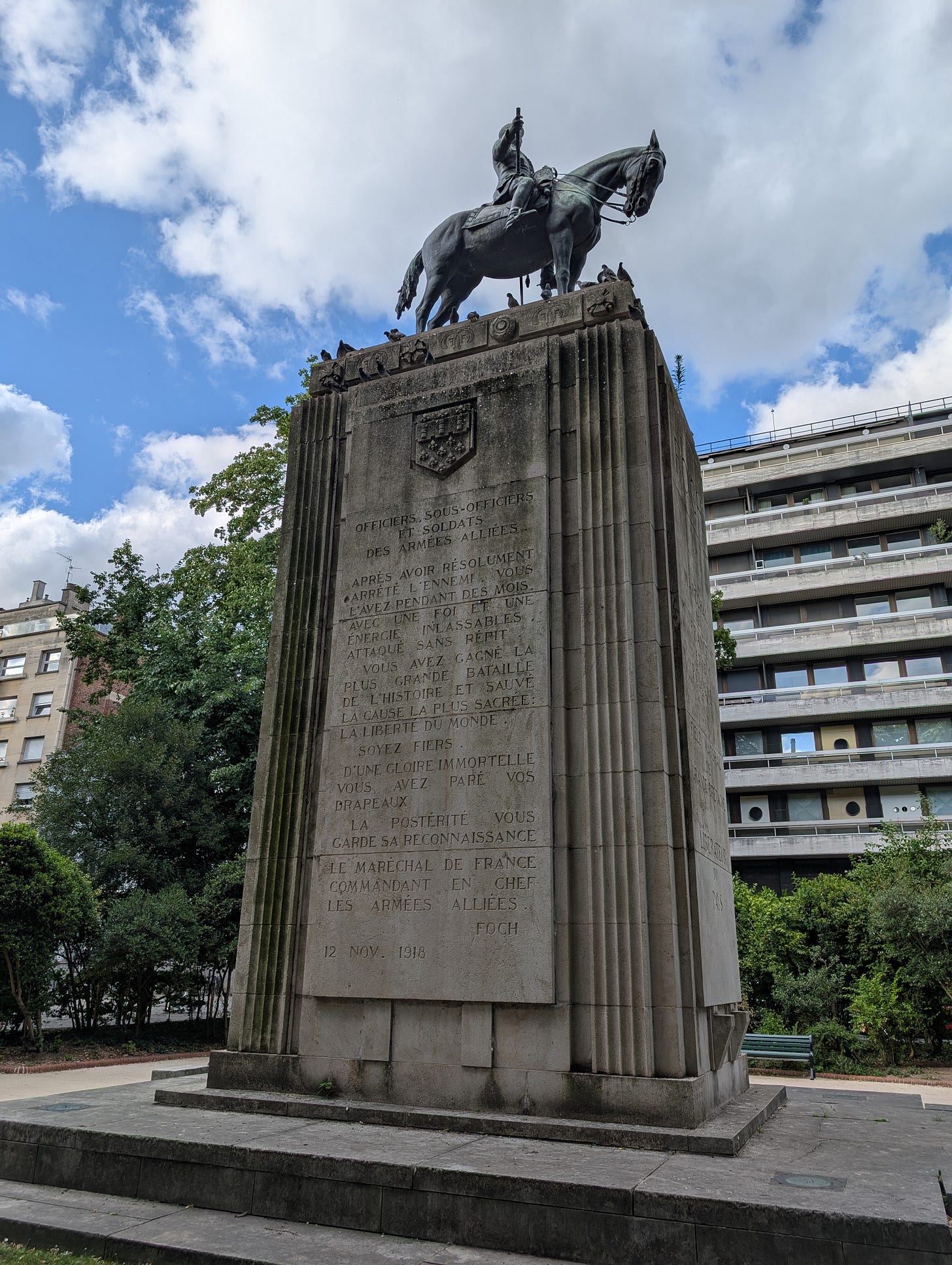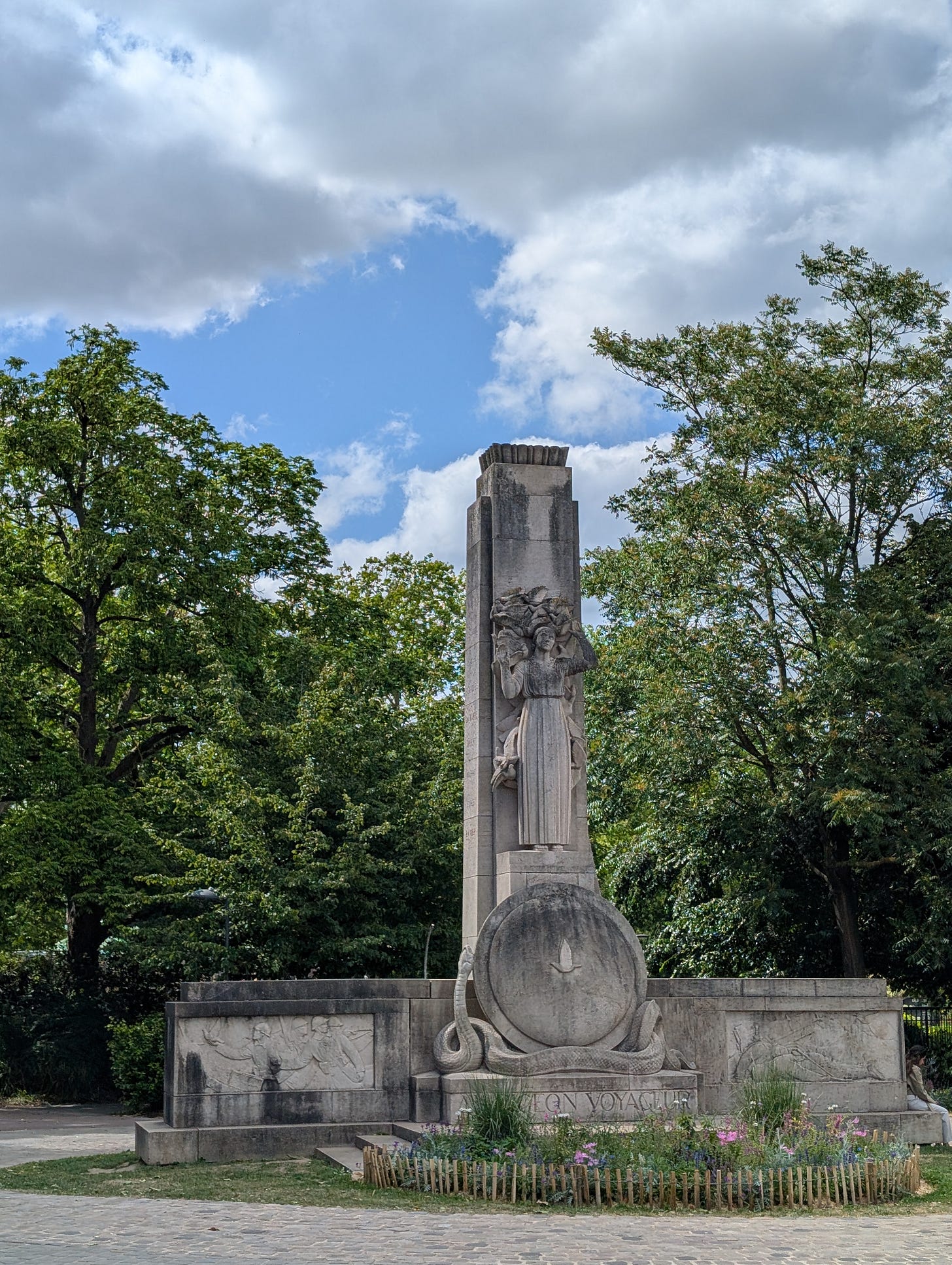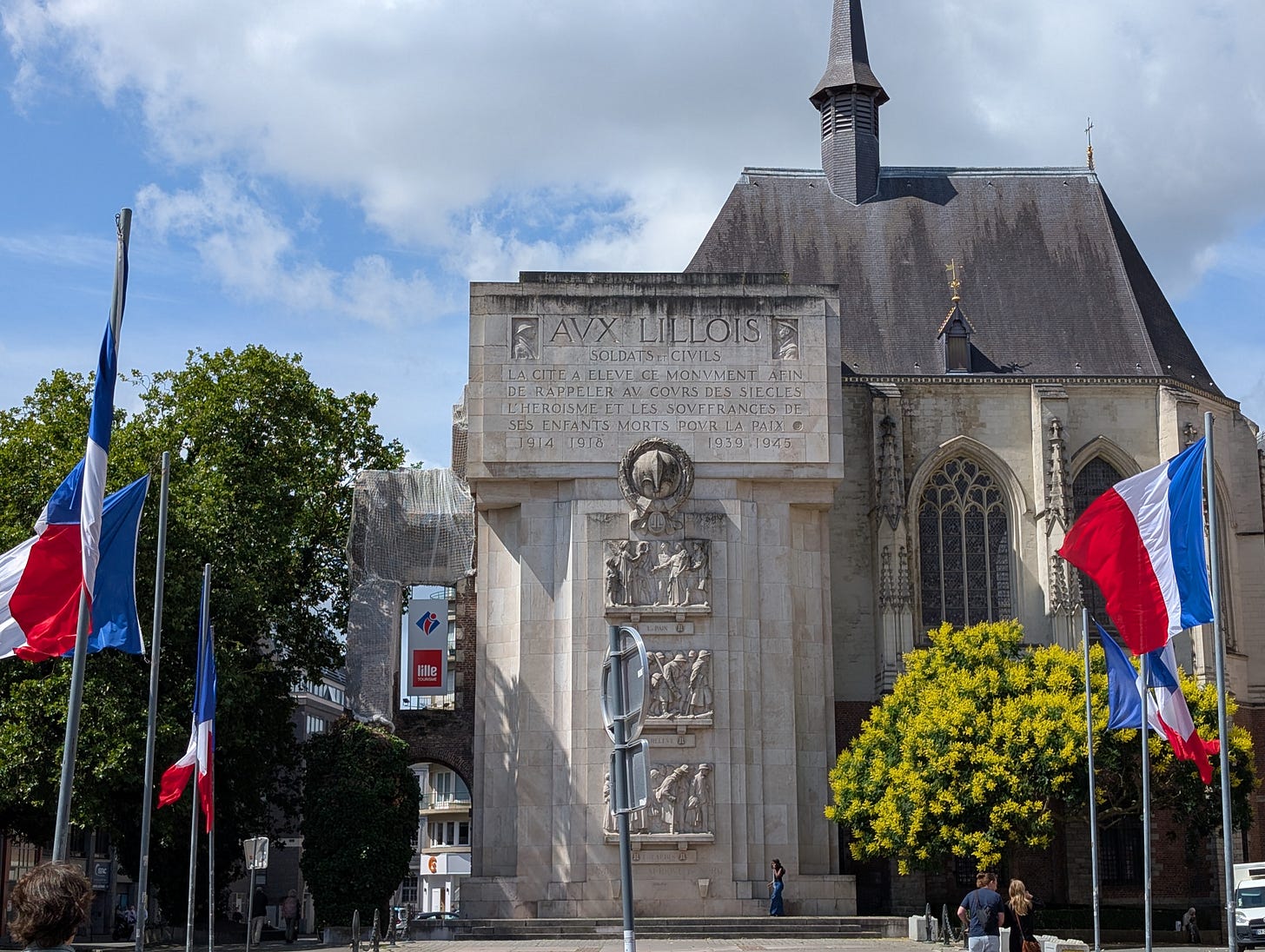My grandmother once told me: “On every street corner in Italy, you’ll find a church.” I quipped back, “And on every street corner in the UK, you’ll find a pub.” Wandering through the streets of Lille for the first time this week, however, I discovered a more sobering sight on every corner: war memorials.
At a time when we seem to constantly be on the verge of another world war (though the likelihood of that actually happening always seems to me pretty slim), the sombre and thought provoking war memorials of Lille prompted me to reflect.
The sculpted figures, the engraved names, the heavy sense of grief that these structures seem to radiate all ask a poignant, troubling question: Have we forgotten what these people died for?
How is it possible that only 100 years after the end of one and the start of another world war, we have forgotten what it was those brave men were fighting for? How is it possible that we have forgotten how these two deadly conflicts began? And the similarities between that and the situation we find ourselves in today?
The USA’s longlasting support for Israel and the UK’s unequivocal support for the US bear a striking resemblence to the situation in 1914. Lest we forget that WWI began with a local conflict that escalated rapidly due to alliances — a chilling reminder of how easily regional conflicts can ignite global wars.
The recent reports of American strikes on Iranian nuclear bases and Iran’s retaliation against US-UK installations evoke an eerie historical parallel. It’s not difficult to draw the lines between these flashpoints and those that triggered the so-called “war to end all wars.”
This begs the question - have we learnt anything at all?
In many ways it feels like a betrayal. Men and women died fighting for their country, and neighboring countries, to be free. They fought for Liberté. They fought so that their children and grandchildren could live in peace. So how is it that we find ourselves in the same situation all over again?
The plaques on the monuments around Lille, and around France in general, are often full of hope. Proud messages thanking soldiers for a peaceful, free world. How would these men and women feel if they saw our world today Betrayal. A deep agony and anger that their lives lost mean nothing to their grandchildren and great grandchildren.
Instead of respecting the past, our leaders manipulate it to justify new conflicts and narrow political ambitions. Politicians and commentators invoke the language of sacrifice, only to turn around and risk it all again in pursuit of influence, power, or ideology.
Modern Europe was built, painstakingly, from the ashes of these global conflicts. Institutions like the European Union, NATO, and the United Nations exist precisely to safeguard the fragile peace millions died for. Every stone and bronze figure commemorating the fallen is a reminder of what happens when that peace is lost — and they deserve more than just a passing glance.
Einstein, a pacifist and internationalist, is often quoted as having said, "I know not with what weapons World War III will be fought, but World War IV will be fought with sticks and stones.” His chilling words remind us that the stakes have never been higher.
We cannot allow history to repeat itself simply because we failed to remember, or because we chose to look away.
That is the deeper message I take home from Lille: we must do more than admire these monuments; we must honor the lives they represent by actively working to preserve the world they hoped to create.
Our forebears fought for a future built on peace, freedom, and dignity.
That future depends on us — to reflect, to remember, and most importantly, to act.

